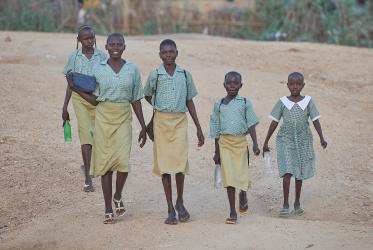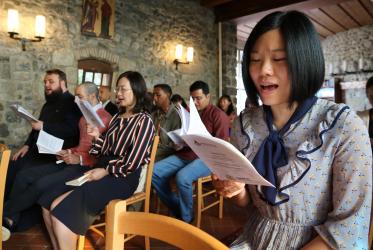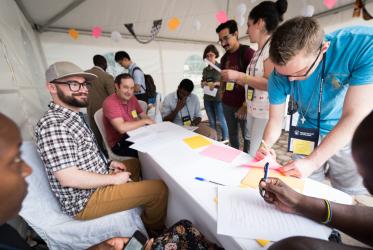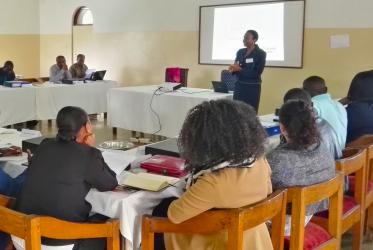Displaying 1 - 20 of 32
Major African youth congress opens in Ghana
02 November 2022
African church youth hold crucial pre-congress meeting
27 October 2021
New student body at Bossey Ecumenical Institute “a source of joy”
14 September 2020
Young Africans are eager to grapple with challenges
09 January 2020
Paving the way for ecumenical studies, learning English in Bossey
24 September 2018
New students welcomed at WCC Bossey Ecumenical Institute
13 September 2018
Diakonia: “a tool to reach abundance of life”
24 July 2018
‘Sokoni’ transforms marketplace into mission
13 March 2018
Indigenous youth want their voices heard
08 March 2018
GETI students plant trees, in service for greener future
07 March 2018
GEM School: integrating theology and economics
05 September 2017
African youth takes stand at first ever WCC Eco-School
03 August 2017
Applications open for WCC Eco-School
10 May 2017













